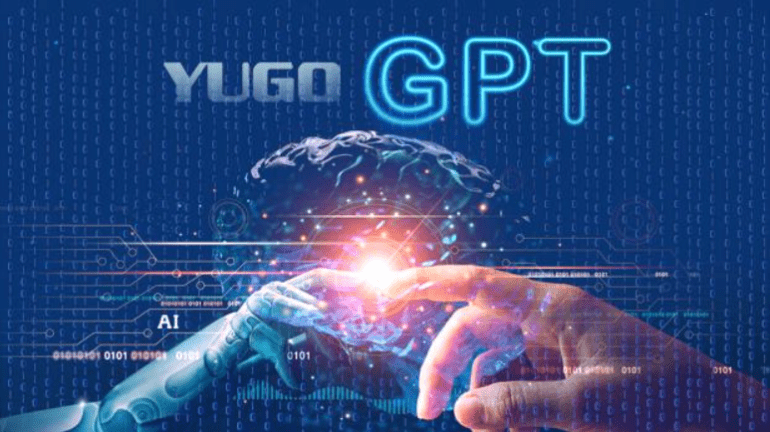TL;DR:
- Aleksa Gordic launches YugoGPT, a cutting-edge generative language model for South Slavic languages.
- YugoGPT caters to Serbian, Croatian, Bosnian, and Montenegrin, offering contextual and precise AI responses.
- The model addresses limitations faced by non-English language regions, providing localized relevance.
- Runa AI seeks to expand YugoGPT’s capabilities and reach through funding and infrastructure development.
- YugoGPT stands out with its open-source, customizable model parameters.
- Data security and privacy concerns are addressed by allowing in-house AI deployment.
- Gordic’s journey from Microsoft to DeepMind culminates in the creation of YugoGPT.
Main AI News:
In a groundbreaking development for the South Slavic language-speaking region, Aleksa Gordic, the founder of Runa AI, has introduced YugoGPT, a robust generative language model designed specifically for Serbian, Croatian, Bosnian, and Montenegrin (BCMS). YugoGPT is poised to become the largest generative language model for these languages, offering a versatile AI assistant capable of comprehending text, providing answers to queries, and addressing the distinctive requirements of individuals and businesses in BCMS-speaking nations.
Meeting Local Language Needs
YugoGPT has emerged as a response to the limitations faced by users outside the realm of English natural language processing (NLP). While AI models like ChatGPT are prevalent in English, they often lack the essential context and relevance for non-English speaking regions. Gordic emphasizes the advantage of YugoGPT, stating that it enables the training of a large language model (LLM) tailored to local needs.
For instance, asking ChatGPT tax-related questions typically assumes a U.S. context, potentially resulting in inaccuracies or irrelevant information for individuals residing in Southeastern Europe. With YugoGPT, users can anticipate more precise and contextually relevant responses tailored to the intricacies of BCMS languages and local practices.
A Vision for Multilingual Empowerment
Alexa Gordic, the visionary behind this innovative endeavor, firmly believes that artificial intelligence should cater to the requirements of every language community. Runa AI is dedicated to constructing multilingual foundational models to empower enterprises and individuals across diverse linguistic scenarios. While YugoGPT represents a significant advancement in addressing the unique needs of BCMS languages, Gordic envisions extending its reach and capabilities even further.
To accelerate its growth, Runa AI is poised to secure seed funding, acquire a GPU cluster, and establish an enterprise-level LLM platform.
Unveiling the Distinctive Capabilities of YugoGPT
The capabilities of YugoGPT are nothing short of remarkable. Gordic proudly asserts that YugoGPT 7B has surpassed competitors like Meta’s (formerly Facebook’s) Mistral and LLAMA2, firmly establishing itself as the leading open-source LLM for Serbian and other HBS languages. What sets YugoGPT apart is its commitment to providing access to model parameters, granting individuals and businesses unparalleled flexibility for customization across various domains, including finance, tax, psychology, and more.
Addressing Data Security and Privacy Concerns
In the age of AI, data security and privacy have become paramount concerns. Many companies are growing cautious about relying on U.S. APIs that necessitate sending sensitive data to third-party servers. Gordic acknowledges this trend and underscores the increasing preference for deploying AI capabilities directly on in-house computing systems.
By granting access to model parameters, YugoGPT affords organizations control over their AI functionalities. This heightened control mitigates concerns associated with third-party involvement, ensuring data security and privacy while harnessing cutting-edge AI capabilities.
A Journey from Microsoft to DeepMind
Alexa Gordic’s journey to creating YugoGPT is marked by a strong background in technology and AI development. Graduating in 2017 with a degree in Electronics from the Faculty of Electrical Engineering in Belgrade, Gordic honed his skills as a software and machine learning engineer at Microsoft’s development center in Serbia, where he made significant contributions to the HoloLens project from 2018 to 2021.
Gordic’s expertise and passion for language models with image and video understanding capabilities eventually led him to Google’s DeepMind. There, he specialized in pushing the boundaries of AI, culminating in the creation of YugoGPT, a groundbreaking model tailored to the unique linguistic and cultural context of Southeastern Europe.
Conclusion:
YugoGPT’s launch signifies a major leap in AI accessibility for South Slavic languages. This innovation not only addresses the specific needs of BCMS-speaking regions but also demonstrates the potential for localized AI models worldwide. As the market increasingly values data privacy and relevance, YugoGPT’s open-source approach and focus on in-house deployment set a precedent for AI development, positioning Runa AI as a key player in the evolving AI landscape.

